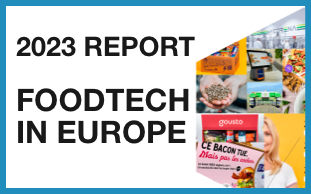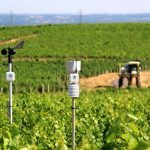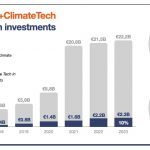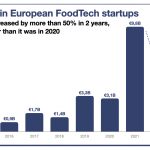BlueNalu raises §60M for its cellular fish. Vow raises $6M for kangaroo clean meat (no comment). Yet, none of these startups has a product on the market. Funds are used to create pilot plants to produce a few hundred kgs of meat. Even if Singapore has authorised one product (chicken) from one corporation (Just), it is only sold in a single restaurant (VIP, on reservation). Clean meat won’t be on our tables before the end of this decade. So, are these startups building, brick by brick, the elements of a huge disillusion?
🇪🇸 IS SPAIN THE NEW ELDORADO FOR CELL AGRICULTURE?
BioTech foods, a Spanish clean meat startup, is getting a €5.2M funding from the Spanish government. This funding will help to investigate how to scale production and how to produce healthier fats. The company previously received a €2.7M funding from the EU commission.
This is even more interesting than a direct grant to the company. In both cases, BioTech foods are leading a consortium of many universities, startups and other companies. It shows the growing interest of all the involved parties to explore cellular agriculture.
After the Netherlands (home of the first experiments in cellular agriculture), Israël, Singapore and the US, is Spain becoming the new eldorado of clean meat?
SINCE YOU’RE HEREThe family, the French superstar accelerator is in trouble, I would just say that I am not surprised – Beyond Meat partners with PepsiCo on snack and beverages, I am quite curious the type of products they could launch together – Deliveroo raises $180M at a $7B valuation, the IPO is coming soon, will you bet on Deliveroo’s stock? – Weber (the barbecue-grill maker) acquired June, a smart oven startup – Glovo raises €100M to grow its network of dark stores, to do so it partners with a real estate company, we can expect more and more investments from real state companies into Dark kitchens and Dark stores in 2021. 💡Did we miss something interesting? Do you want a personalised deep dive? contact us! |








Cellular Ag is the most profound revolution food will have experienced in the past decades even centuries.
As for any revolution theire will be a bubble momemetum… which should not be a reason to not see how impactful and trasnformational it will be. And like for so many other technology disruptions, France is about to be lagging behind because so many people will have spent too much time arguing about the issues instead of trying to build on the opportunities…
This is true innovation. THis is why it’s complex and most exisitng actors of the envrionment do understand it.
Indeed, cellular agriculture could be a revolution. If I am quite convinced, I am not 100% certain that it will deliver its promise and it could well be just a small component of the many parts of the agri-food industry’s future.
What I mean by “bubble” is the level of valuations in some countries and in some companies in this industry which are very, very far from being market-ready. Additionally, media and startups are building expectations which are, in my view, irrealistic in terms of timing and pricing.
And, yes, you are correct, France, like Europe, is somewhat lagging. However, I am a bit more optimistic than you. France already has a couple of exciting cellular agriculture startups with Gourmey and Vital Meat. And behind them, there is an ecosystem of biotech companies and more mature corporations that could become the key suppliers of this industry.
Les projets de développement de la viande cultivée sont des projets de long terme et ça fait seulement quelques années ou mois que les entreprises (pour les plus avancées) ont pu lever les fonds nécessaires pour faire réellement avancer le développement de leurs produits.
Bonjour Nathalie,
comme vous le dites, les projets d’agriculture cellulaire vont encore prendre beaucoup de temps avant d’atteindre le marché (notamment la parité prix avec la viande). Or, aujourd’hui, on voit une bulle qui commence à se constituer à deux niveaux :
1 – les valorisations de certaines startups (notamment celles qui sont les plus proches du consommateur final) sont très élevées et bâties sur des projections et des promesses non tenables.
2 – une bulle médiatique se constitue et est encore plus inquiétante. L’idée que les produits d’agriculture cellulaire seront là “demain” se renforce et ne peut que conduire à des déconvenues importantes.
Si certains entrepreneurs sont précautionneux dans leur discours, ce n’est pas le cas de tous.
Matthieu – Co-fondateur @DigitalFoodLab
Bonjour
La bulle médiatique est en effet décevante compte tenu notamment du nombre d’approximations voire d’inexactitudes scientifiques qui sont colportées dans les médias.
On ne peut pas être spécialiste de tout et chacun doit rester dans sa sphère de compétence. Il est en effet regrettable d’associer à la culture cellulaire des affirmations erronées sur d’autres sujets (environnement, élevage, alimentation, etc).
Etre précautionneux dans le discours est en effet une voie pour être crédible.
JF Hocquette